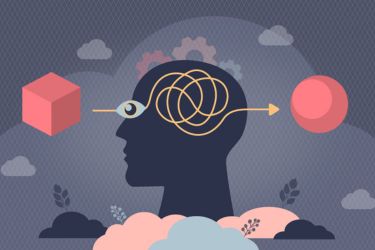Bilingualism is more than just the ability to speak two languages; it fundamentally shapes the way our brains function. Research shows that being bilingual can enhance cognitive abilities, improve mental agility, and even help delay cognitive decline as we age. This intriguing connection between language and brain function invites us to explore how switching between languages not only enriches our communication but also boosts our brain's resilience and overall performance.
As we navigate through the fascinating ways bilingualism impacts cognitive processes, we will discuss the various advantages it offers. From sharpening our problem-solving skills to promoting better attention control, being bilingual equips us with tools that enhance our daily lives. The cognitive benefits of bilingualism can have lasting effects, making it a valuable asset in our increasingly globalised world.
Key Takeaways
- Bilingualism enhances cognitive abilities and promotes mental agility.
- Being bilingual helps build cognitive reserve, which protects against decline.
- Switching between languages improves attention control and problem-solving skills.
The Bilingual Brain
Bilingualism not only enriches our ability to communicate but also brings unique changes to our brain structure and function. These changes help us manage multiple languages, enhance cognitive control, and reshape how our brains operate.
Brain Structure and Functional Changes
Research shows that bilingualism can alter brain structure. Areas associated with language and cognitive control, like the dorsolateral prefrontal cortex and the left inferior frontal gyrus, often develop more robust connections. This can lead to increased grey matter volume in these regions.
In addition to structural changes, bilingualism contributes to brain plasticity. This adaptability allows our brains to reorganise neural pathways in response to learning new languages. Such modifications enhance our overall cognitive abilities and help fend off cognitive decline as we age.
Language Systems and Control
The bilingual brain has an intriguing way of managing languages. Unlike a simple two-language processor, both languages remain active. This constant engagement requires sophisticated control mechanisms.
Cognitive control enables us to switch between languages seamlessly and suppress one language while using another. This mental juggling strengthens executive functions, such as attention and problem-solving, making bilingual individuals adept at multi-tasking. The supermarginal gyri are crucial in this process, as they play a role in integrating sensory information and language processing.
Neuroimaging Insights
Neuroimaging studies, particularly using functional magnetic resonance imaging (fMRI), shed light on how bilingualism influences brain activity. These studies reveal that bilinguals often show different activation patterns compared to monolinguals, particularly when switching languages.
Research indicates that bilinguals tend to activate additional brain regions when processing language. This includes areas linked to memory and attention, reflecting the need for enhanced cognitive resources. By observing these patterns, we gain valuable insights into how language and cognition intertwine in the bilingual brain.
Cognitive Advantages of Bilingualism
Bilingualism offers numerous cognitive advantages that enhance our mental capabilities. These advantages include better executive functions, improved memory, and increased skills in multitasking and problem-solving. Understanding these benefits helps us appreciate the overall impact of being bilingual.
Enhanced Executive Functions
One of the most important cognitive benefits of bilingualism is the enhancement of executive functions. These functions include cognitive control and mental flexibility, which enable us to manage our thoughts and actions effectively. As bilingual individuals switch between languages, they develop stronger inhibitory control, allowing them to filter out distractions and focus better. This practice in selective attention means we can adapt to changing situations more quickly. Studies also show that bilinguals have improved cognitive functioning, which can lead to advantages in academic and professional settings.
Improved Memory and Attention
Bilingualism is linked to advances in both memory and attention. Our working memory benefits from the constant use of two languages, which improves our ability to hold and manipulate information. This enhancement leads to better retention of tasks and details. Additionally, the attentional control that comes from juggling multiple languages means we can concentrate better in complex environments. Research indicates that bilinguals often outperform monolinguals in memory tasks, showcasing a clear advantage in recalling information accurately and efficiently.
Multitasking and Problem-Solving Skills
Multitasking is another area where bilingualism shines. The skills we develop through switching languages empower us to manage several tasks simultaneously with greater ease. Bilingual individuals exhibit superior problem-solving skills, largely due to their cognitive flexibility. This flexibility allows us to view challenges from different perspectives and come up with innovative solutions. The ability to shift focus quickly enhances our overall responsiveness when faced with unexpected issues. Studies support the notion that bilinguals are often more adept at navigating complex problems and finding efficient solutions.
Cognitive Development in Bilinguals
Bilingualism can significantly shape cognitive development. We will explore how learning multiple languages affects language acquisition, processing, and academic performance. The insights provided here underline the benefits that bilingual individuals experience in various cognitive domains.
Language Acquisition and Processing
Bilingual education enhances language acquisition. When we learn two languages, we often become more skilled in language processing and comprehension. This experience encourages the brain to develop stronger connections associated with language production.
Bilingual children can switch between languages with ease. This flexibility sharpens their cognitive skills, enabling them to understand complex concepts more effectively. Research indicates that bilingualism contributes to improved linguistic abilities, which leads to better language proficiency in both languages.
Moreover, bilingual individuals often exhibit enhanced problem-solving skills. This cognitive growth arises from managing two linguistic systems, which challenges and strengthens our brain's neural pathways.
Impact on Academic Performance
Bilingualism positively influences academic performance. Studies show that bilingual students often excel in various subjects compared to their monolingual peers. This advantage is linked to improved executive function, which includes skills like attention control and working memory.
By navigating two languages, we develop better cognitive flexibility. This capacity allows us to adapt to new information and complex tasks more effectively. Bilingual students tend to perform better in standardised tests, showcasing their cognitive outcomes.
Additionally, bilingual education prepares students for diverse environments. The ability to communicate in multiple languages often opens doors to various academic and professional opportunities, further enhancing their overall cognitive development.
Bilingual Experience and Cognitive Reserve
Bilingualism has a significant impact on our cognitive health, particularly as we age. Our linguistic skills seem to enhance our cognitive reserve, helping us maintain brain function despite the onset of age-related decline. This section explores how bilingualism influences our cognitive abilities and offers protection against cognitive decline.
Aging and Cognitive Decline
As we grow older, cognitive decline can affect our daily lives. Memory, problem-solving skills, and overall cognitive performance may deteriorate. Research shows that age-related cognitive decline is often associated with a higher risk of developing dementia.
Bilingual individuals often display better cognitive resilience. Studies suggest that those who speak two or more languages may experience the onset of dementia later than monolinguals. This delay can be attributed to the cognitive engagement required in managing different languages, which seems to build up our cognitive reserve.
Bilingualism as a Protective Factor
Bilingual experience strengthens our cognitive reserve. By constantly switching between languages, we exercise our brain, keeping it active and sharp. This cognitive engagement helps us utilise neural resources more efficiently, which may delay cognitive decline.
Engaging with multiple languages improves our brain’s ability to adapt to changes. Research supports that bilingualism can promote structural changes in the brain, further enhancing our ability to cope with neuropathology. This suggests that bilingualism is not just about communication; it's a powerful tool for maintaining cognitive health as we age.
In conclusion, the interplay between bilingualism and cognitive reserve offers promising insights into ageing and cognitive health.
Cognitive Processes and Control Mechanisms
Bilingualism affects cognitive processes and enhances our control mechanisms. It specifically improves inhibition and task-switching abilities, which are essential for effective cognitive control. These skills help us manage multiple tasks and filter out distractions, making them vital in our daily lives.
Inhibition and Task-Switching
Inhibition is crucial for managing automatic responses and distractions. Bilingual individuals often demonstrate enhanced inhibition, allowing them to focus better during tasks. This skill is evident in several cognitive tasks, such as the Stroop task, where participants must name the colour of words that spell different colours. Bilinguals typically perform better in such tasks, suggesting stronger inhibitory control.
Task-switching is another important cognitive function that allows us to shift attention between tasks smoothly. Studies involving tasks like the Flanker and Simon tasks show that bilinguals perform more efficiently when switching between tasks. Their ability to manage these transitions boosts cognitive flexibility, which is vital in our fast-paced lives.
Relevance of Anterior Cingulate Cortex
The anterior cingulate cortex (ACC) plays a key role in executive control and decision-making. This brain region is associated with monitoring and resolving conflicts, which are common during tasks requiring cognitive control. Bilingual individuals often show enhanced ACC activation during cognitive tasks.
Research indicates that bilingualism may strengthen the connections and functions of the ACC. This enhancement allows for quicker processing and better management of competing information. As a result, we can efficiently navigate complex environments where multiple stimuli demand our attention. The importance of the ACC in cognitive functioning highlights how bilingualism can lead to improved brain efficiency and adaptability.
Challenges and Limitations of Bilingualism
While bilingualism has many benefits, we must also consider the challenges that come with managing two languages. These challenges can affect bilingual speakers in various ways, impacting their cognitive functions and language abilities.
Language Competition and Interference
Bilingual speakers often experience language competition, which can lead to interference when they switch between languages. This competition occurs because both languages are activated in the brain simultaneously. When we try to express ourselves, the unintended language may come to mind.
This can create language difficulties, especially in situations where speed or clarity is crucial. For instance, bilingual individuals may occasionally use words or phrases from one language while speaking another. This interference can place additional attentional demands on our cognitive resources, making communication more challenging.
Environmental and Individual Factors
Environmental factors also play a significant role in bilingualism. Changes in our surroundings can influence how well we maintain our language skills. For example, if we move to a place where only one language is spoken, we may find that our proficiency in the other language decreases over time.
Individual differences in language aptitude and experience can further complicate the bilingual experience. Some of us may struggle more with language switching due to personal factors. These can include age of acquisition, daily exposure, and motivation. Understanding these differences can help us navigate the complex landscape of bilingualism more effectively.
Bilingualism in Society and Culture
Bilingualism has a significant impact on society and culture, influencing how we communicate and open doors in various career paths. Understanding these aspects helps us appreciate the wider implications of being bilingual.
Cross-Cultural Communication
Bilingual individuals enhance cross-cultural communication by bridging gaps between languages and cultures. When we communicate in multiple languages, we can convey more nuanced meanings and emotions. This ability fosters deeper connections with people from different backgrounds.
The cognitive consequences of bilingualism also play a role here. Bilingual minds are adept at navigating different cultural contexts, which boosts mental agility. This skill allows us to switch between perspectives and understand diverse viewpoints with ease.
Moreover, multilingualism teaches us to be more empathetic and open-minded. The processing demands of switching languages can lead to improved adaptability in various social settings. This leads to richer interactions and better collaboration in multicultural environments.
Career Opportunities and Globalisation
In today's globalised world, bilingualism opens up numerous career opportunities. We see a demand for bilingual professionals in fields like business, education, and healthcare. Companies often seek individuals who can communicate across cultures and markets.
Being bilingual enhances our neurocognition, which is valuable in fast-paced workplaces. The ability to juggle multiple languages equips us with improved problem-solving skills and creativity. This creates a competitive edge in job markets that value diversity.
Furthermore, with the rise of remote work, the ability to communicate in several languages makes us more adaptable to international teams. Clients and stakeholders appreciate a workforce that can converse in their native languages, improving business relationships and expanding market reach.
Frequently Asked Questions
Bilingualism offers various cognitive advantages and influences several aspects of brain function and development. We explore how it affects memory, cognitive development in children, and the differences between bilingual and monolingual brains. Additionally, we consider any potential drawbacks and health benefits associated with being bilingual.
What are the cognitive advantages of being bilingual?
Bilingual individuals often show improved problem-solving skills, creativity, and multitasking abilities. Research suggests that speaking multiple languages helps enhance executive function, which includes decision-making and attention control. This cognitive flexibility can lead to better adaptation to new challenges.
In what ways does bilingualism influence memory retention and recall?
Being bilingual can support better working memory, which is crucial for holding information temporarily. Studies indicate that bilingual people may have improved memory retention and recall when compared to their monolingual peers. This is because juggling multiple languages strengthens the brain’s memory capacity.
How does bilingualism contribute to cognitive development in children?
Children who learn more than one language at a young age often demonstrate enhanced cognitive skills. Bilingualism can promote better language skills and critical thinking. It also supports neuroplasticity, which is the brain's ability to adapt and grow through learning.
What distinctions can be observed between bilingual and monolingual brains?
Bilingual brains tend to have unique structural features, including increased grey matter density in certain regions. These differences are tied to higher levels of brain connectivity and efficiency. Bilingualism influences how the brain processes language and can lead to distinct patterns in brain activity.
Are there any cognitive drawbacks associated with bilingualism?
While bilingualism has many benefits, some research suggests it might lead to limited vocabulary in each language when compared to a monolingual speaker. This is often due to the divided attention between languages, especially in childhood. However, these drawbacks are generally outweighed by the cognitive advantages.
What health benefits are linked to bilingualism?
Bilingualism is associated with a lower risk of cognitive decline in later life and can delay the onset of dementia. This is because using multiple languages keeps the brain active and engaged. Additionally, being bilingual may enhance neural resilience, contributing to overall brain health.





















